(srpski) Pomagači udruženog zločinačkog poduhvata u državnoj službi

Sorry, this entry is only available in srpski.


Sorry, this entry is only available in srpski.

Sorry, this entry is only available in srpski.

 The trial against an officer and a non-commissioned officer in the Serbian Army, Pavle Gavrilović and Rajko Kozlina, for the crime committed against a civilian population in the village of Trnje in March 1999, continued on Tuesday and Wednesday, October 27th and 28th, 2015, in Courtroom 2 of the Special Court. After the postponement of the previous five main hearings, victims and eyewitnesses of the crime will appear for the first time to testify in the trial session.
The trial against an officer and a non-commissioned officer in the Serbian Army, Pavle Gavrilović and Rajko Kozlina, for the crime committed against a civilian population in the village of Trnje in March 1999, continued on Tuesday and Wednesday, October 27th and 28th, 2015, in Courtroom 2 of the Special Court. After the postponement of the previous five main hearings, victims and eyewitnesses of the crime will appear for the first time to testify in the trial session.

 The Humanitarian Law Center (HLC) presented the „Operation Reka“ Dossier on October 23rd, 2015. The Dossier offers an overview of the events which occurred on April 27th and 28th, 1999, in the villages located west of the town of Đakovica in Kosovo, when the comprehensive joint operation by Yugoslav Army (VJ) and the Ministry of the Interior (MUP) called „Operation Reka“ was launched. During this Operation, members of the Serbian forces killed at least 350 civilians – Kosovo Albanians, and deported several thousand other civilians to Albania. The bodies of 309 victims were found in 2001 in secret mass grave sites in a suburb of Belgrade. The youngest victim was 15 years old.
The Humanitarian Law Center (HLC) presented the „Operation Reka“ Dossier on October 23rd, 2015. The Dossier offers an overview of the events which occurred on April 27th and 28th, 1999, in the villages located west of the town of Đakovica in Kosovo, when the comprehensive joint operation by Yugoslav Army (VJ) and the Ministry of the Interior (MUP) called „Operation Reka“ was launched. During this Operation, members of the Serbian forces killed at least 350 civilians – Kosovo Albanians, and deported several thousand other civilians to Albania. The bodies of 309 victims were found in 2001 in secret mass grave sites in a suburb of Belgrade. The youngest victim was 15 years old.
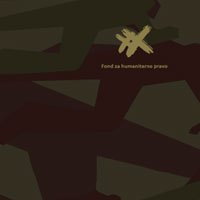
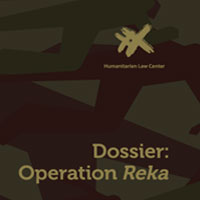 On 27 and 28 April 1999, the Yugoslav Army (VJ) and Serbian Ministry of Interior (MUP) conducted a joint, large-scale operation named “Operation Reka” in the Kosovo villages lying west of the town of Gjakovë/Đakovica. During the operation, members of Serbian forces killed at least 350 ethnic Albanian civilians, and expelled thousands more to Albania. The mortal remains of 309 victims were found in the secret mass graves in Belgrade suburb in 2001. With the number of victims, the attack against the civilian population in the Reka e Keq/Reka Valley was the gravest crime against civilians committed during the war in Kosovo, and among the gravest of all the crimes committed in the 1990s in the wars in the former Yugoslavia.
On 27 and 28 April 1999, the Yugoslav Army (VJ) and Serbian Ministry of Interior (MUP) conducted a joint, large-scale operation named “Operation Reka” in the Kosovo villages lying west of the town of Gjakovë/Đakovica. During the operation, members of Serbian forces killed at least 350 ethnic Albanian civilians, and expelled thousands more to Albania. The mortal remains of 309 victims were found in the secret mass graves in Belgrade suburb in 2001. With the number of victims, the attack against the civilian population in the Reka e Keq/Reka Valley was the gravest crime against civilians committed during the war in Kosovo, and among the gravest of all the crimes committed in the 1990s in the wars in the former Yugoslavia.

Sorry, this entry is only available in srpski.
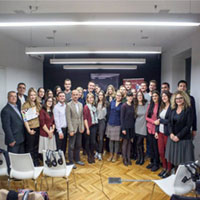
 A debate on the role of education in the process of dealing with the legacy of the violent past was held on October 22nd, 2015, in the Library of the Humanitarian Law Center (HLC). The participants in the debate were Sanja Petrović Todosijević, a historian from the Institute for the Recent History of Serbia, Daša Duhaček, a Professor at the Faculty of Political Sciences in Belgrade, the Deputy Executive Director of the HLC, Marijana Toma, and students of the fourth generation of the Regional School for Transitional Justice. The topics of the debate were the position of the educational system towards past human rights violations, the role of youth in reconciliation processes and non-institutional (informal) platforms for the provision of support to efforts to teach history on the basis of facts that have been established.
A debate on the role of education in the process of dealing with the legacy of the violent past was held on October 22nd, 2015, in the Library of the Humanitarian Law Center (HLC). The participants in the debate were Sanja Petrović Todosijević, a historian from the Institute for the Recent History of Serbia, Daša Duhaček, a Professor at the Faculty of Political Sciences in Belgrade, the Deputy Executive Director of the HLC, Marijana Toma, and students of the fourth generation of the Regional School for Transitional Justice. The topics of the debate were the position of the educational system towards past human rights violations, the role of youth in reconciliation processes and non-institutional (informal) platforms for the provision of support to efforts to teach history on the basis of facts that have been established.

Sorry, this entry is only available in srpski.
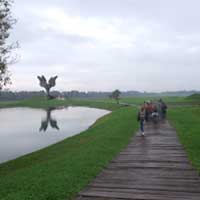
 A one-day visit to memorial sites in Croatia was organized as part of the study programme of the Regional School of Transitional Justice (School). Twenty-five students of the fourth generation of the School visited the memorial monument and the Jasenovac Memorial Museum and the Memorial Centre and memorial monument in Ovčara, near Vukovar. On this occasion, they talked about the culture of remembrance in relation to the crimes committed in these locations.
A one-day visit to memorial sites in Croatia was organized as part of the study programme of the Regional School of Transitional Justice (School). Twenty-five students of the fourth generation of the School visited the memorial monument and the Jasenovac Memorial Museum and the Memorial Centre and memorial monument in Ovčara, near Vukovar. On this occasion, they talked about the culture of remembrance in relation to the crimes committed in these locations.
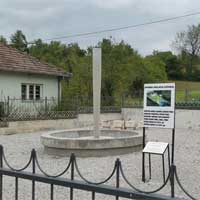
 Regarding the 23rd anniversary since the crime in Sjeverin
Regarding the 23rd anniversary since the crime in Sjeverin
On Thursday, 22nd of October, the opening of the memorial to the victims in Sjeverin will mark the 23rd anniversary of the abduction and murders of 16 Serbian citizens of Bosnian nationality. The Humanitarian Law Center (HLC) and the Sandžak Committee for the Protection of Human Rights and Freedoms (the Sandžak Committee) caution that, from the point of view of international law, it is unacceptable for the Republic of Serbia not to approve the status of civilian war victims to the victims of Sjeverin. At the same time, the HLC and the Sandžak Committee state that the engagement of the local community and the municipality of Priboj in the commemoration of this crime and their help in constructing the monument are a rare example of responsible attitude on part of the institutions in the former Yugoslavia towards the victims, who come from an ethnic minority community.